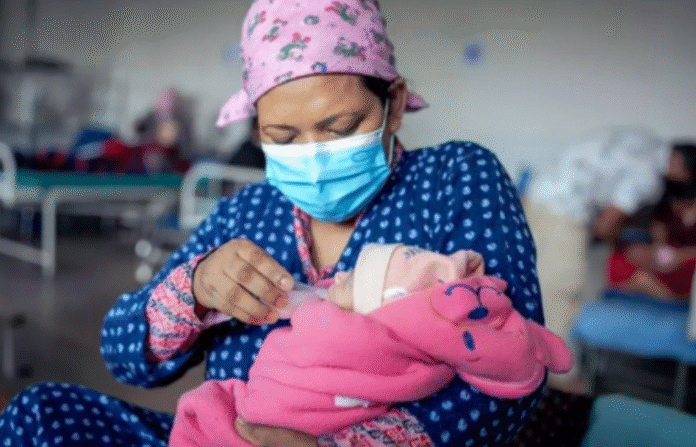NEW DELHI– Undernutrition, long associated with stunted growth and lack of nourishment, is now being linked to a rising risk of obesity and diabetes, according to health experts and new global data.
UNICEF’s Child Nutrition Report revealed that in 2025, the prevalence of obesity among school-age children and adolescents surpassed underweight for the first time worldwide. Experts say this shift highlights how unhealthy food environments and poverty-driven choices are fueling a “double burden of malnutrition.”
“When we think of undernutrition, we usually picture thin children or adults who haven’t grown properly. But in today’s world, undernutrition can also lead to obesity,” said Dr. Rajeev Jayadevan, Chairman of the Scientific Committee at IMA Cochin. “People from poorer backgrounds often buy cheap, sugar- and fat-heavy foods with little nutritional value, which contribute to diabetes and obesity.”
Jayadevan pointed to sugary soft drinks and packaged fried snacks—widely marketed and inexpensive—as prime examples, contrasting them with balanced diets richer in protein, fiber, fruits, and vegetables that remain less accessible to the poor.
Researchers also stress that undernutrition in mothers has long-term consequences. Children born undernourished are more likely to develop obesity and metabolic disorders as adults, especially when later exposed to calorie-dense diets.
A recent study published in Cell Metabolism by Indian researchers used a rat model spanning 50 generations to replicate the effects of chronic undernutrition in human populations. The study found that undernourished rats developed metabolic abnormalities, including higher insulin levels and reduced vitamin B12 and folate. These changes persisted for two generations, even after access to normal diets was restored.
“In India, the paradox of undernutrition heightening the risk of obesity and diabetes is explained through the concept of the ‘double burden of malnutrition,’” said Dr. Sanjeev Galande, Dean of the School of Natural Sciences at Shiv Nadar University and a co-author of the study. “Early-life undernutrition conditions the body to conserve energy and store fat, setting the stage for obesity and type 2 diabetes when calorie-rich foods and sedentary lifestyles become common.”
Experts also flagged the compounding effects of physical inactivity, smoking, and alcohol use in increasing obesity risk. They called for urgent policy action to ensure affordable access to nutritious foods and to curb the aggressive marketing of unhealthy, ultra-processed products. (Source: IANS)














